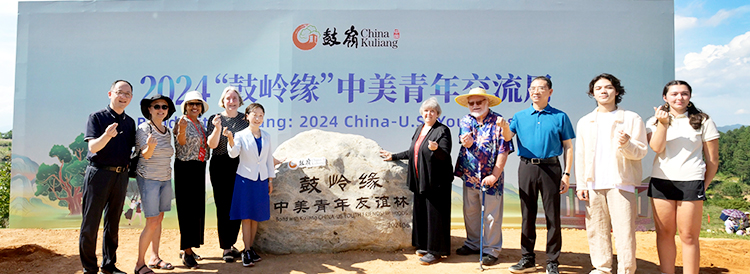

In 1994, Fuzhou in Fujian province set sail as one of China's first coastal cities to embrace the ocean, launching the groundbreaking "Maritime Fuzhou" strategy. The development of its marine economy has since become both the cornerstone of this vision and a powerful engine driving Fuzhou's transformation into a modern, international city.
In Lianjiang county, innovative aquaculture models are taking root, expanding the city's "blue granary" farther offshore. Now, Fuzhou has successfully deployed 12 deep-sea aquaculture platforms — ranking first in the country in terms of both the number and the output — and has established itself as China's largest intelligent offshore ranch.
Since 2018, the city's gross marine product has grown at an average annual rate of 7.5 percent, outpacing the province's average by two percentage points and the national average by four. A landmark achievement came in 2022 when Lianjiang announced China's first-ever carbon credit transaction in the marine fishery sector. For 30 consecutive years, Fuzhou has led the nation in fisheries output value, while ranking second in total production of aquatic products.
Technology is revitalizing traditional industries and accelerating transformation and upgrading across sectors. In Fuzhou New Area, "AI quality inspectors" are enhancing textile manufacturing with defect detection accuracy exceeding 95 percent.
As the birthplace and early testing ground of the "Digital Fujian" strategy, Fuzhou has long been at the forefront of digital innovation. In 2001, the municipal government established a dedicated leading group and office to coordinate the "Digital Fuzhou" initiative. The city has since hosted the Digital China Summit for eight consecutive years, attracting more than 900 digital projects. By 2024, Fuzhou's digital economy had grown to a scale exceeding 770 billion yuan ($107.8 million), with total digital yuan transactions surpassing 350 billion yuan.
In the same year, Fuzhou's coastal ports handled 335 million tons of cargo, including 92.08 million tons of foreign trade cargo — a year-on-year increase of 5.62 percent, twice the provincial growth rate.
The city is now home to six industrial clusters each valued at over 100 billion yuan, four industrial parks each exceeding 100 billion yuan in output, 20 enterprises each with an annual revenue of more than 10 billion yuan, 217 industry-leading companies and over 4,600 national high-tech enterprises.
Fuzhou's GDP has soared from 485.77 billion yuan in 2013 to 1.42 trillion yuan in 2024. Bolstered by its openness, innovation-driven momentum and unique ecological advantages, Fuzhou is swiftly advancing on its path to becoming a modern, international metropolis.
